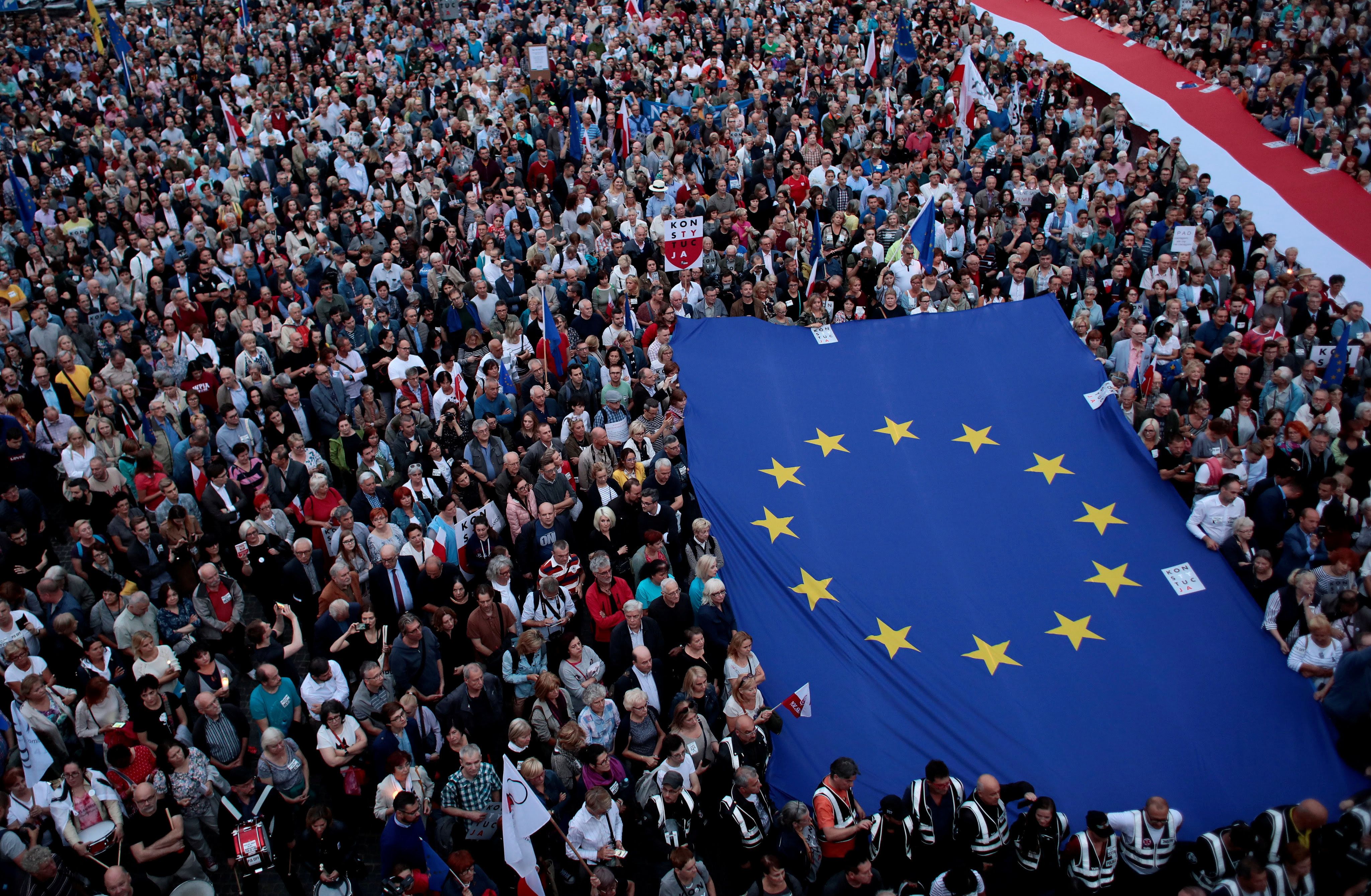Poland’s government ordered a purge of the country’s Supreme Court this week, creating a showdown we’ve been anticipating for two years. The right-wing Law and Justice Party (PiS), which rules Poland today, escalated its bid to consolidate power by forcing more than two dozen of 72 Supreme Court justices, including the top judge, into retirement.
It accomplished this by passing a law that requires any judge 65 or older to petition the president for permission to continue work. (The government’s proposed replacement for the chief judge is 66.) In response, tens of thousands of protesters hit the streets of more than 60 cities and towns, and some of the judges have simply refused to leave the bench. That’s the battle within Poland.Then there’s PiS’s fight with the EU. The European Commission has warned that this action amounts to a power grab in violation of EU rules, and that Poland risks disciplinary action. But any European attempt to invoke Article 7, the section of the EU’s founding treaty that can authorize sanctions in response to violations of rule of law, won’t get far. A vote for sanctions must be unanimous, and Poland’s ruling party knows that like-minded friends in Hungary’s government will vote no. The EU will struggle even to withhold some budgetary funding to punish Poland and Hungary.
The government can withstand pressure from the EU. Less clear is whether it can impose its will on a divided country in years to come. This is nothing less than a battle for Poland’s future.
